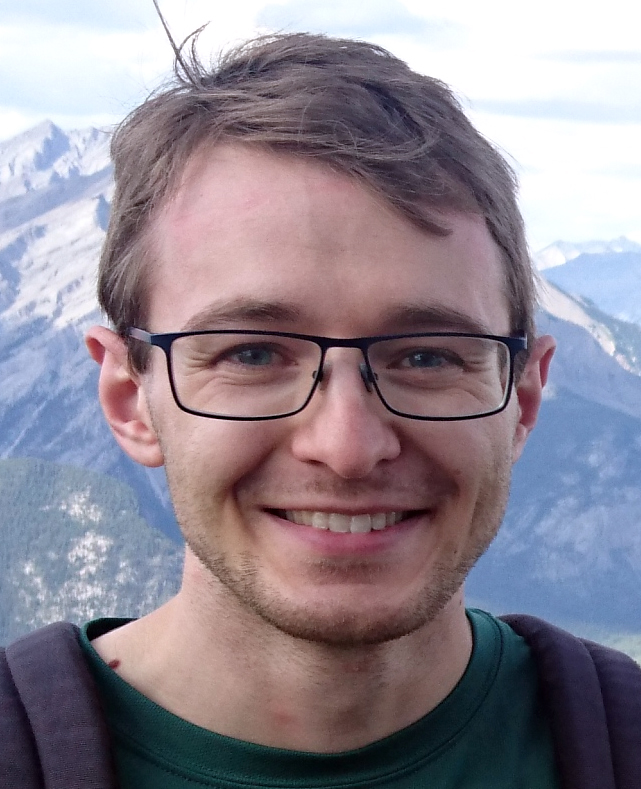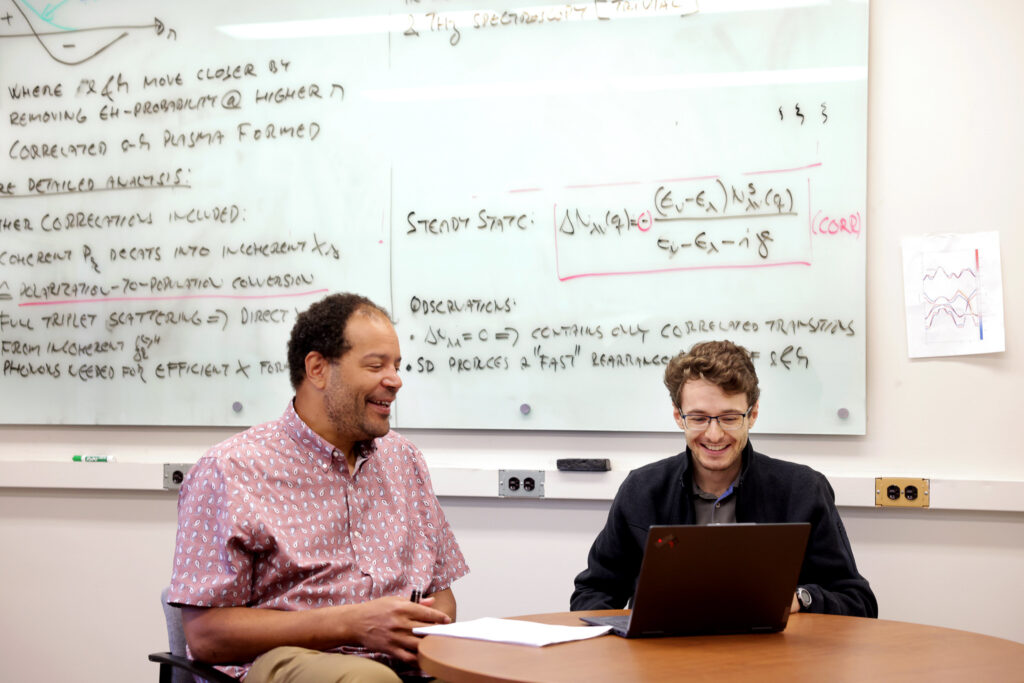Markus Borsch receives ProQuest Distinguished Dissertation Award for research on lightwave electronics

Markus Borsch (PhD ECE 2023) received a 2023 ProQuest Distinguished Dissertation Award for his dissertation, Theory of Lightwave-Driven Quantum Electronics in Solids. This award recognizes doctoral students who have produced exceptional dissertation work at the University of Michigan.
“What truly excites me about my research is the opportunity to explore uncharted territory and take a peek beyond the current limits of our knowledge,” said Borsch.
Borsch has focused his dissertation on describing and predicting the movement of electrons that have been excited by light. Through his theoretical work and experiments with collaborators, he has described electron dynamics in solid matter with unprecedented spatial and temporal resolutions.
“By using very strong fields and moving the electrons extremely fast, we can preserve and utilize the electrons’ quantum properties,” Borsch explained, “This is one of the ideas of lightwave electronics.”
During his PhD studies, Borsch developed new techniques to measure the quantum state of electrons and characterize new quantum materials. These insights may enable the acceleration of computer clock rates to petahertz scales (1 PHz; one million gigahertz/GHz), well beyond the current clock rates of just over nine GHz.
What truly excites me about my research is the opportunity to explore uncharted territory and take a peek beyond the current limits of our knowledge.
Markus Borsch, ECE PhD Alum
Borsch’s dissertation work has ties to the 2023 Nobel Prize in Physics, which was awarded to Ferenc Krausz, Anne L’Huillier, and Pierre Agostini “for experimental methods that generate attosecond [one quintillionth of a second] pulses of light for the study of electron dynamics in matter.”
Borsch has applied these methods to semiconductors, enabling rapid advancement in next-generation quantum technologies. His paper “Lightwave Electronic in Condensed Matter,” published in Nature Materials Reviews, has been selected for a special Nature Collection that celebrates this Nobel Prize.
“One of the defining visions for this research is to develop solid-state-based quantum technologies that combine the existing infrastructure and scalability of semiconductor technologies with the advantage that quantum technologies can provide for communication, sensing, and computing,” Borsch said.

Borsch’s studies have been published in Nature and Science––an impressive feat for a scientist at any career stage. He has previously received the Rackham Predoctoral Fellowship, which supports outstanding doctoral students working on dissertations that are unusually creative, ambitious, and impactful.
Borsch has conducted this research with Prof. Mack Kira in the Quantum Science Theory Lab. “I am both proud of and humbled by Markus’ extraordinary research breakthroughs, and feel privileged for the opportunity to be his supervisor,” said Kira.
Borsch is continuing his work in the Quantum Science Theory Lab as a postdoctoral scholar. He and Kira will further explore how electron movement may be used to develop novel techniques to measure the quantum state of light.